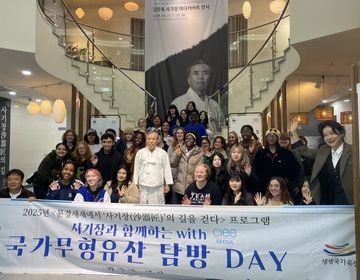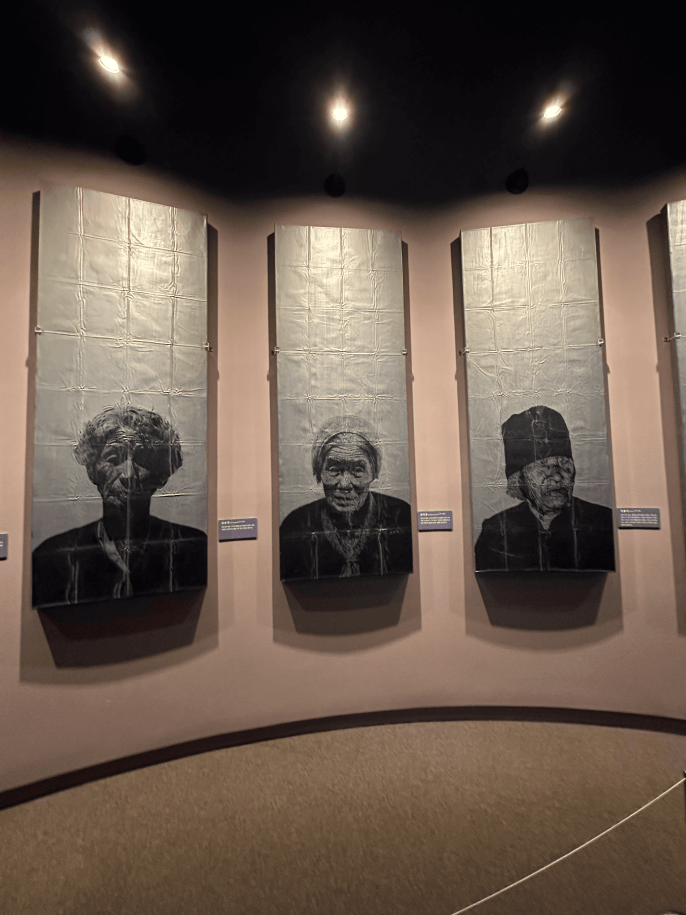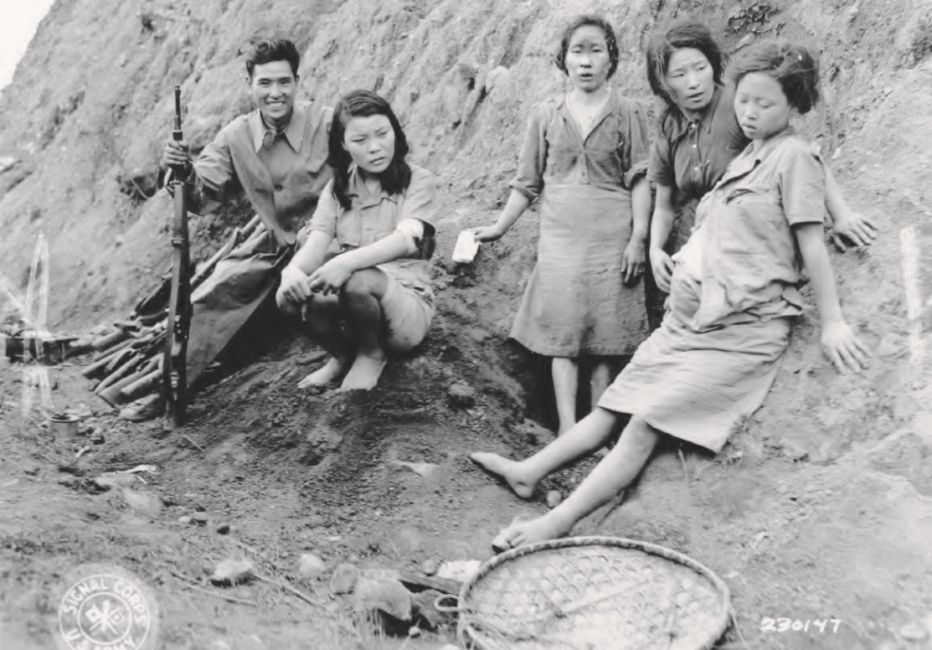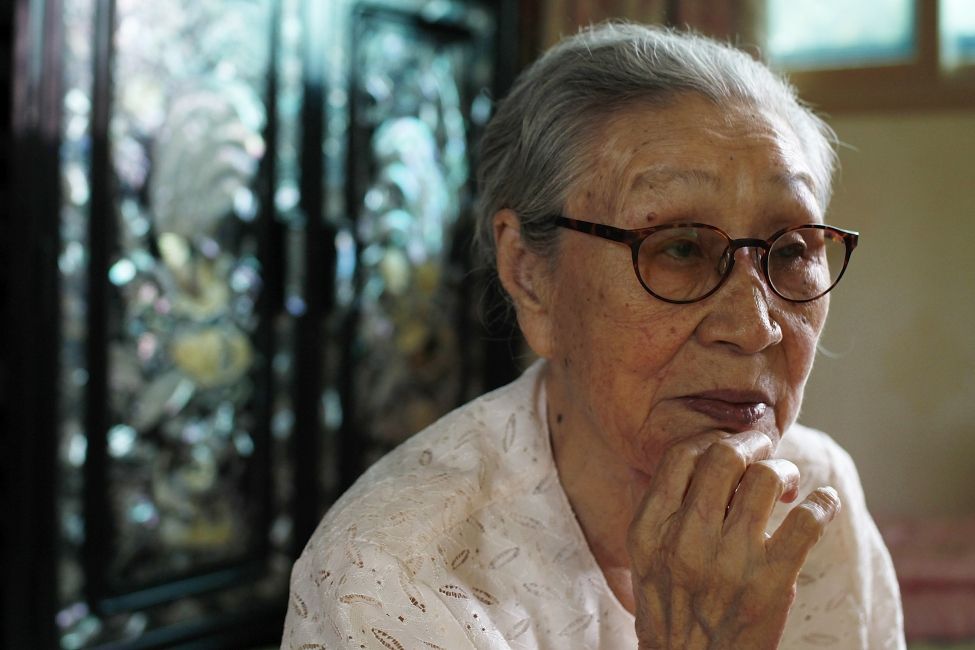Her Story: Being a ‘Comfort Women’ during Japan's colonial period
During my time here in South Korea, I have come to learn about the injustices, discrimination, and cruel treatment its civilians endured during the colonization period of Japan. One of the many social issues that have come to my attention is the ‘comfort women’. In the CIEE Intercultural Leadership and Communication class, I was first exposed to the concept of comfort women when visiting the National Museum of Korean Contemporary History. There, I saw drawings made by surviving victims of the incident; they shared their truth and experiences of being comfort women during the colonization period of Japan. For those who don't know, the term ‘Comfort Women’ were South Korean girls ranging from ages 14 - early twenties who provided sexual labor for Japanese soldiers, in other words, they were raped by Japanese soldiers. In the drawings, I felt a variety of emotions but from most of them, I could sense fear, sadness, and uncertainty. After reflecting on my newly acquired knowledge about ‘comfort women’, it made me wonder why their story was not taught in American textbooks or even publicized within Korean media.
To expand my knowledge, I began to do my own research and found a video on youtube titled, Life As A “Comfort Woman”: Story of Kim Bok-Dong”. I HIGHLY recommend that you watch this video but be aware that it may be triggering for some seeing that it touches on rape and sex trafficking. In the video Ms. Bok-Dong speaks about her experience of being a ‘comfort woman’; she expresses the shame she felt in sharing her story specifically with her mom, her experience combating the Japanese government (who are trying to conceal the truth and existence of comfort stations and comfort women). What shocked me the most was when she explained how she was tricked and lied to when her mom sent her off. She explains how the Japanese soldiers said she would be sent to work in a factory but she was taken to a comfort station. Unfortunately, Ms. Bok-Dong has passed away from cancer, but her story and fight still remain. In the video, Ms. Bok-Dong explains that all she wanted was for the Japanese government to acknowledge their wrongdoings and apologize to the victims. Even with her story and the stories of others, the Japanese government still has not fully acknowledged their wrongdoings nor have acknowledged the lifelong impact being a ‘comfort woman’ has had on the victim's lives.
Moreover, at the War and Women's Human Right Museum, I was able to learn more about the untold truths of ‘comfort women’. Here I learned that not only did South Korean women were forced to become comfort women, but other women around Asia and men were forced to become ‘comfort women’. Also, not only were women raped, but they were also murdered, faced physical abuse, and some ended up pregnant, and have lifelong health issues. But it was inspiring to learn about how many of the women engaged in activism and made acts to fight against the silencing of their stories.
With all that said, I felt it is important to raise awareness, so more people can share their stories and influence the Korean government, but more specifically the Japanese government to acknowledge the stories of ‘comfort women’ and give them the long overdue apology of dealing with the lifelong trauma and scars of being a comfort women. As a student studying abroad in South Korea, as it may be fun to engage in Korean culture and consume Korean export industries, it's just as important to learn about the social injustices faced by Korean society to understand the history and development of the nation it has become today.
Here are some links to resources to learn more about the experiences of the ‘comfort women’;
- Youtube videos by Asian Boss: https://www.youtube.com/watch?v=qsT97ax_Xb0
- Animation of a survivor: https://www.youtube.com/watch?v=5nUpuVL5Uyw
- Visiting the War & Women's Human Rights Museum in Korea: 12 World Cup buk-ro 11-gil Mapo-gu, Seoul (서울시 마포구 월드컵북로 11길 12)
- NY Times Article on the ‘Comfort Women’
Related Posts

Soul Searching in Seoul: Everything I Learned and What I Wish I Knew
Before I start crafting my “study abroad changed me” answers for friends and family, here are the practical things I wish I’d known. The things that would’ve saved me time... keep reading

A Seoul Escape to Bukhansan
Get out of the hustle and bustle of Seoul and head to the peak of Bukhansan!

My Time in South Korea Attending Yonsei University: A Life-Changing Chapter
By: Zahrraa Al-Salman Studying abroad had always been a dream of mine—an opportunity to step outside of my comfort zone, immerse myself in a new culture, and deepen my understanding... keep reading



